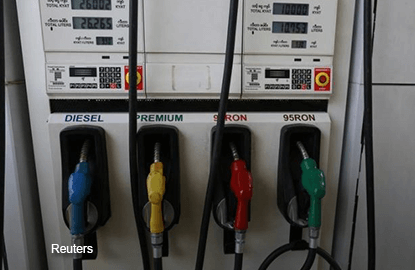
 KUALA LUMPUR: Besides the current political uncertainties, the renewed downward momentum in crude oil prices is also exerting pressure on the ringgit as concerns about Malaysia’s dependence on oil revenue — which makes up about 30% of the federal government’s revenue — are back in the limelight.
KUALA LUMPUR: Besides the current political uncertainties, the renewed downward momentum in crude oil prices is also exerting pressure on the ringgit as concerns about Malaysia’s dependence on oil revenue — which makes up about 30% of the federal government’s revenue — are back in the limelight.
Malaysian Institute of Economic Research executive director Dr Zakariah Abdul Rashid opined that the ringgit, which fell 0.02% against the US dollar to 3.8523 yesterday, may not have hit the floor yet as it could worsen before it gets better.
He did not rule out the possibility that the ringgit could fall to 4.0 against the US dollar should crude oil prices decline further, putting pressure on the ringgit.
“We used to be a net exporter of O&G (oil and gas), and we are now a net importer. We are poorer off in terms of export value, which will have implications on federal government revenue,” said Zakariah.
He noted that government revenue would be adversely affected should crude oil prices continue to fall, which would hamper the government’s ability to spend, i.e. budgetary constraints.
“A quarter of our exports is O&G-related. If the price of crude has dropped more than 50%, that means our export revenue will be affected by that amount,” he explained.
According to Zakariah, the International Monetary Fund has an oil price average forecast of US$58.87 (RM227.24) per barrel this year. He noted that should the oil price recover to the forecast level, it would help to lend support to the ringgit to regain lost ground.
Brent crude rose to US$65.7 per barrel of oil in mid-June, from US$48.79 early this year. However, it has since fallen 23.4% to US$50.32 yesterday.
Slower fuel demand in China and the increase in output in Iran after international sanctions are lifted would weigh on the crude oil prices.
Iran’s Oil Minister Bijan Namdar Zanganeh was quoted by the media as saying that the country can boost oil production by 500,000 barrels a day within a week, after the sanctions end, and by one million barrels a day within the following month.
This article first appeared in digitaledge Daily, on August 5, 2015.